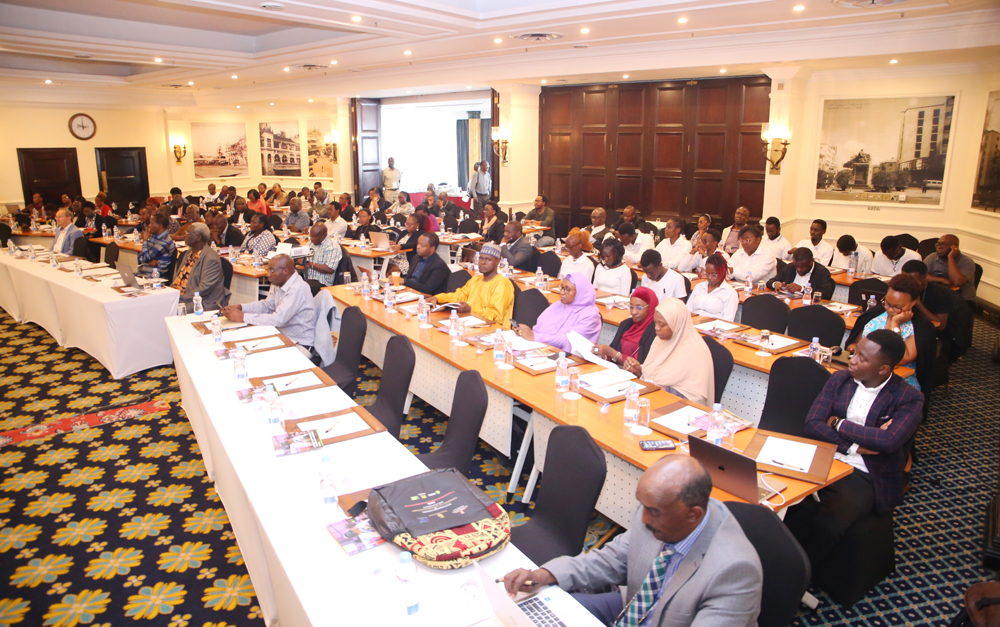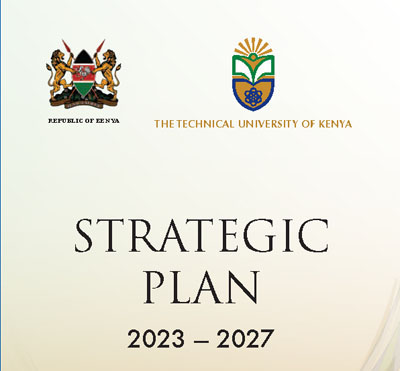The Vice-Chancellor, Prof. Benedict Mutua, has challenged policy makers in Africa to embrace indigenous knowledge since it is an invaluable resource that holds the potential to address some of the most pressing global challenges. Prof. Mutua said this when he addressed participants during the third International Conference on Information and Knowledge Management held at a Nairobi hotel from 2nd to 6th October, 2023.
The conference theme was: Attaining Sustainable Development Goals through Indigenous Knowledge.
The VC said the conference was timely and relevant saying, “we gather here to explore this knowledge, it is essential to acknowledge the importance of respecting, preserving, and incorporating indigenous knowledge into our contemporary strategies for sustainable development.”
He added that the preservation of traditional knowledge was not only a matter of cultural heritage but also a matter of planetary survival.
“The conference is a platform to delve deep into how indigenous knowledge systems can be harnessed to eradicate poverty to ensure clean water and sanitation; responsible consumption and production to promoting gender equality,” said Prof Mutua.
He explained that the conference was one of the key academic events which played a pivotal role in fostering the realisation of TU-K’s mission and vision captured in the motto: “Education and training for the real world.”
The key note speaker, Prof. Elizabeth Kiondo from Tanzania, emphasised that indigenous knowledge has over the years empowered generations in their quest to address the numerous challenges they in their struggle to sustain their livelihoods.
She explained that indigenous knowledge has always been used to fight hunger, promote good health, maintain food security, increase agricultural productivity, manage natural resource and in conflict prevention and resolution.
“It has sustained livelihoods in the past and is still sustaining livelihoods today as current socio economic dynamics demand the continued use of this knowledge for sustainable livelihoods.”
She said that local communities have time and again demonstrated resilience and power in the face of emerging challenges such as Covid-19 as well as climate change and related environmental disasters.
“When the world was looking for a global solution to the pandemic, some African countries invoked indigenous knowledge to counter the disease. In Tanzania, a steam of concoction of variety of herbs was used both as treatment and prevention measure. Tanzania never locked-down and the impact of the disease was minimal, thanks to the Indigenous knowledge and other related measures,” she said.
Prof. Kiondo explained that when faced with issues that threaten their survival, people seek their own solutions, in their own languages, using indigenous knowledge and practices.
“Recently, I was invited by colleague to visit a traditional clinic which specialises in treating paralysis caused by strokes as well as broken bones through traditional healing methods. The doctor at the clinic learnt the trade from his grandmother and he is passing the knowledge to his peers at the clinic,” she said adding that severe cases of patients healed through such treatment have been documented and more patients were attending the clinic after failing to get the right treatment in modern facilities, some of them due to high cost factors.
Prof. Kiondo elaborated on how globalisation was regarded as a threat to indigenous knowledge systems, saying that if not well preserved and protected, it can be pirated by other actors for their own benefit. In some cases she explained that there is a challenge of collective ownership of certain knowledge assets. She noted, “There have been some cases where African indigenous knowledge practices in arts and crafts have been pirated, reproduced and commercialised for the benefit of foreigners, therefore dispossessing the locals of their ownership. This also happens when big pharmaceuticals take advantage of medicinal plants that are part of indigenous knowledge and possess them for commercial gain without due acknowledgement.” She questioned the law of Intellectual Property Rıghts (IPR) of indigenous knowledge adding that it should be at the fore-front, defending and protecting ownership of Indigenous Knowledge.
The conference brought together scholars and experts in various fields. It was organised by TU-K with support from the National Museums of Kenya, Natural Products Industry Initiative, African Population and Health Research Centre, Kenya Film Commission and the Kenya Commercial Bank.


